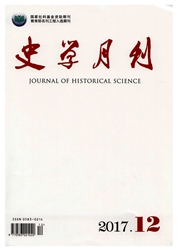

 中文摘要:
中文摘要:
19世纪60年代晚期,随着香港转口贸易日趋繁荣,华商假道香港走私之风日渐猖獗,广东官府采取“封锁香港”遏制歪风。此举引发粤港双方旷日持久的争执,随着双方围绕反对封锁行动的人士是否具有代表性、粤方的封锁行动是否侵犯香港主权、《天津条约》涉及贸易问题的条款该如何解释、粤方是否蓄意毁灭香港贸易繁荣景象、封锁行动是否对合法民船贸易造成危害、粤方在开展缉私行动时拥有多大权限等六类纠纷的争辩日渐深入,相关问题的症结也次第凸显,走私者、地痞无赖、基层税务官员三种隐藏幕后的害群之马相继浮出水面。此后,鉴于阻碍问题妥善解决的各种困局相继得到消解,赫德成功推动了粤港双方达成妥协方案,“封锁香港”问题最终得到解决。
 英文摘要:
英文摘要:
Along with the booming trends of entrepot trade in Hong Kong, smuggling by Chinese merchants became more and more serious in the late 1860s, the Guangdong local government chose to blockade Hong Kong as a countermeasure. The above conditions caused so many disputes between the Guangdong and Hong Kong interest groups. The gradually deepening bargains consist of six kinds of disputes, i. e. whether the opposers held true opinions, whether the blockade action invade the sovereignty of Hong Kong, how to explain the clauses of the Tianjin Treaty linked with trade matters, whether the Guangdong government aimed to destroying the booming trade condition of Hong Kong, whether the blockade action hurt the legal junk trade and how much powers may the Guangdong government hold in suppressing the smuggle actions. While the different parties recognized the major paradox step by step, the three kinds of real terrible roles of various parties also lost their veil. Since both sides realized the roots of the impasse and intended to make compromise, Robert Hart finally helped them to reach a series of new agreements on the disputes.
 同期刊论文项目
同期刊论文项目
 同项目期刊论文
同项目期刊论文
 期刊信息
期刊信息
